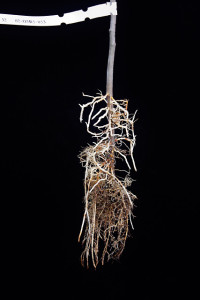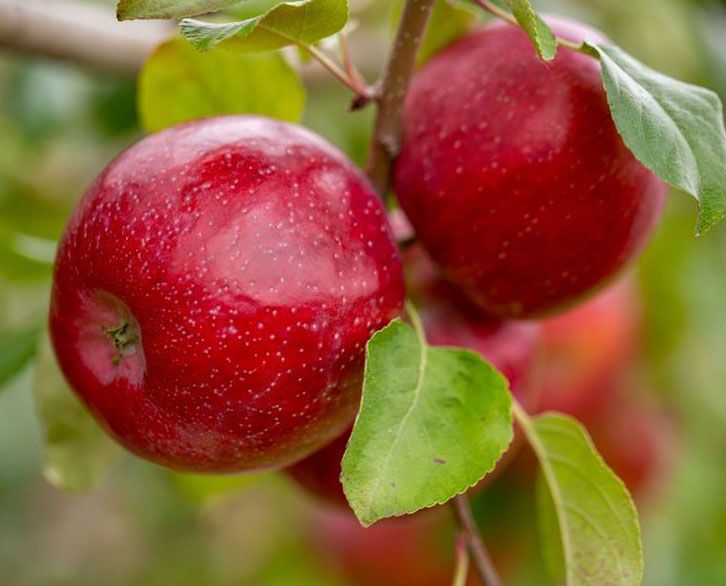Agriculture Research Service Partnership With Cornell University Seeks To Develop Better Apple Rootstocks

An up-close view of a Geneva rootstock. (Photo credit: Sarah Bauer, ARS)
With 600 acres of apple trees in Walden, NY, Jeff Crist faces a number of threats from nature each year.
Fire blight, a bacterial disease that attacks blossoms, shoots, and limbs, has been known to kill off entire orchards. Replant disease, which reduces growth of new trees in soils that support the same type of tree year after year, can cause major losses. Aphids and cold temperatures can also cut into apple production.
“The challenges from a horticultural standpoint are always there. You just have to try to do everything possible to minimize them,” says Crist, a fourth-generation farmer whose family has grown apples in the region for about 100 years. Crist was named 2007 American and Western Fruit Grower’s Apple Grower of the Year.
Crist and other apple producers are better equipped to face those threats because of a one-of-a-kind program in Geneva, NY, operated by Agricultural Research Service scientists and Cornell University.
The program, overseen by Gennaro Fazio of the ARS Plant Genetic Resources Unit in collaboration with Cornell scientists, produces new rootstock varieties that will play a major role in the continued success of a $3.1-billion-a-year apple industry in the United States. Apples rank second, just behind oranges, as the nation’s most consumed fruit, when fresh and processed uses are combined.
Commercial apple growers routinely replace trees every 20 to 25 years, and this year, about 1 in 5 of the new trees shipped from nurseries to growers—some 2.4 million trees — is on Geneva rootstock. Rootstocks from Geneva are also being used in some European countries, as well as in Brazil, Chile, New Zealand, South Africa, and Uruguay. Geneva rootstocks are in high demand because they have proved to be effective at overcoming many of the obstacles growers face in producing a bountiful harvest.
“The Geneva program has made major contributions. It’s given us new tools to combat fire blight, replant disease, woolly apple aphids, and winter cold, among other problems,” says Phillip Baugher, who is chairman of the research committee for the U.S. Apple Association and president of Adams County [Pennsylvania] Nursery, which propagates 600,000 apple trees annually.
An article in the August 2014 issue of Agricultural Research magazine has more details on Geneva rootstock and the ARS study focusing on disease resistance and cold tolerance.
Source: USDA-Agricultural Research Service










